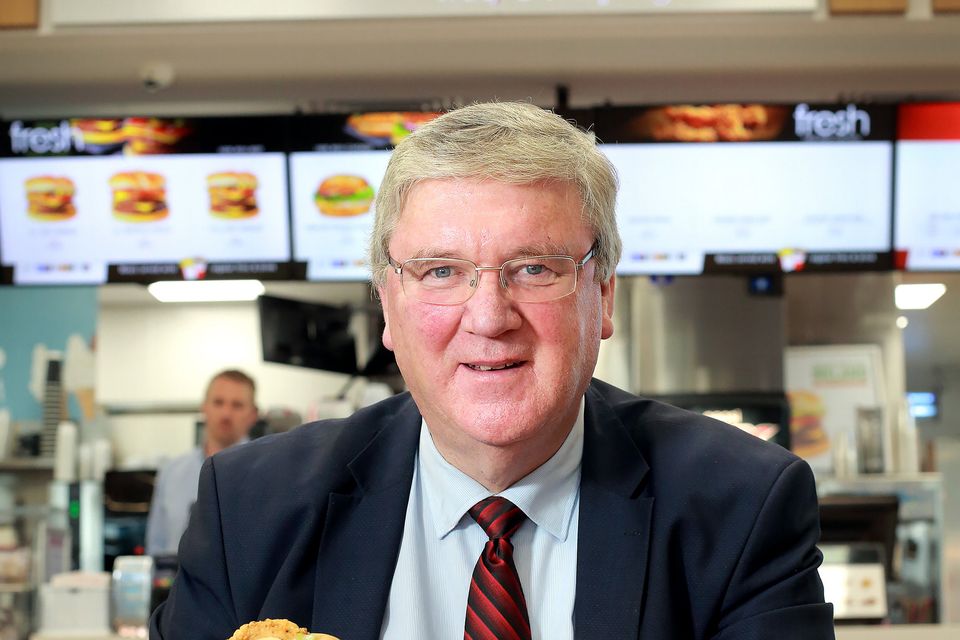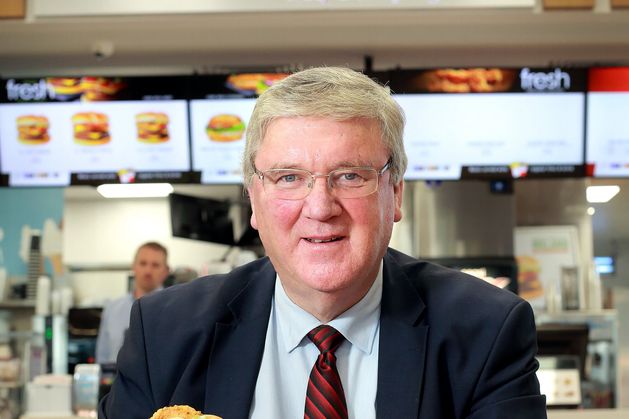With some of the chains already making super-sized profits of tens of millions of euro, a cut to their tax liability could go straight to the bottom line. That is even as they face higher labour costs as the Government mulls raising the minimum wage.
Earlier this week, Ryanair boss Michael O’Leary described the planned Vat cut as a “scam”, and insisted the Government needs to stop increasing the minimum wage.
“The Government should under no circumstance reduce the Vat on hospitality such as on restaurants or anything else from 13pc to 9pc. They are going to trouser the money. It won’t get passed on to consumers,” he said.
“Simon Harris got bounced into this at the last election. He should grow a pair of balls and tell the hospitality industry, that’s it.”
Our industry is in trouble in terms of margin and trying to stay afloat
But Adrian Cummins, the chief executive of the Restaurants Association of Ireland, insisted this week that its members remain under intense pressure.
“Our industry is in trouble in terms of margin and trying to stay afloat,” he said.
The most recent publicly available accounts for Pat McDonagh’s Supermac’s show it made a €43.6m pre-tax profit in 2023 on revenue of €294.3m.
McDonald’s – whose revenue is generated from fees received from franchisees and sales to them – made a pre-tax profit of €42m in 2024 on revenue of €84.4m. The chain’s biggest franchisee, Amir Afsar’s Persian Restaurants, made a €4.7m pre-tax profit in 2024 on sales of €52.7m.

Supermac’s founder and chief executive Pat McDonagh in one of his restaurants. Photo: Frank McGrath
Today’s News in 90 Seconds – September 27th
US fast-food chains are increasingly eyeing Ireland for expansion through franchisees. Taco Bell, Wendy’s, Popeye’s and Wingstop are among the firms that have either opened or are opening outlets here.
In next month’s budget, the Government is planning to cut the Vat rate for the food sector to 9pc from 13.5pc in response to pleas to support as some high-profile restaurant closures grab headlines. While the Government is now eyeing plans to exclude fast-food chains from benefiting from a Vat cut, there is no certainty yet that they will be given the cold shoulder in what is already a controversial proposal.
The cut could cost the Exchequer €868m a year in lost tax revenue. If it is applied only to the accommodation and food sectors, it would cost €675m.
But the proposal comes at a time when the country faces an uncertain global economic backdrop and the Government is being continually warned of its over-reliance on corporation tax receipts from a small number of big multinationals to support spending and tax cuts.
Food businesses have been pressing the Government for months to reduce the 13.5pc Vat rate to 9pc. They say they continue to face significant challenges, including elevated energy costs and rising wage costs.
The National Competitiveness and Productivity Council argued this week that targeted measures for the sector would be more effective than a broad Vat cut.

